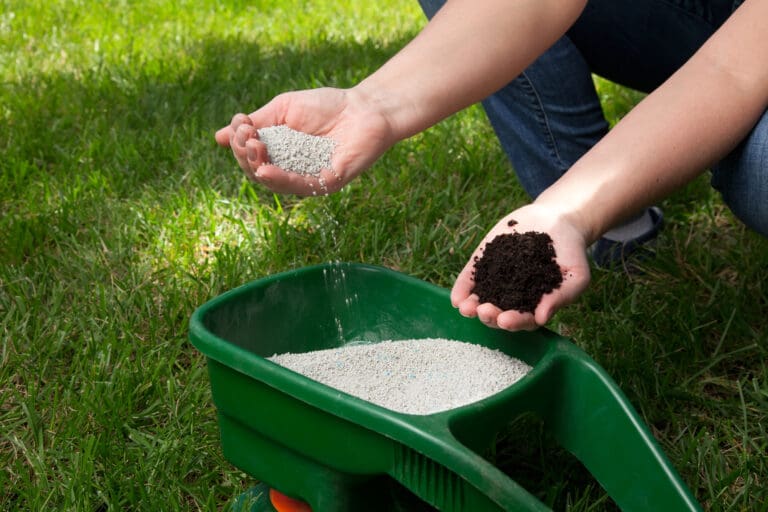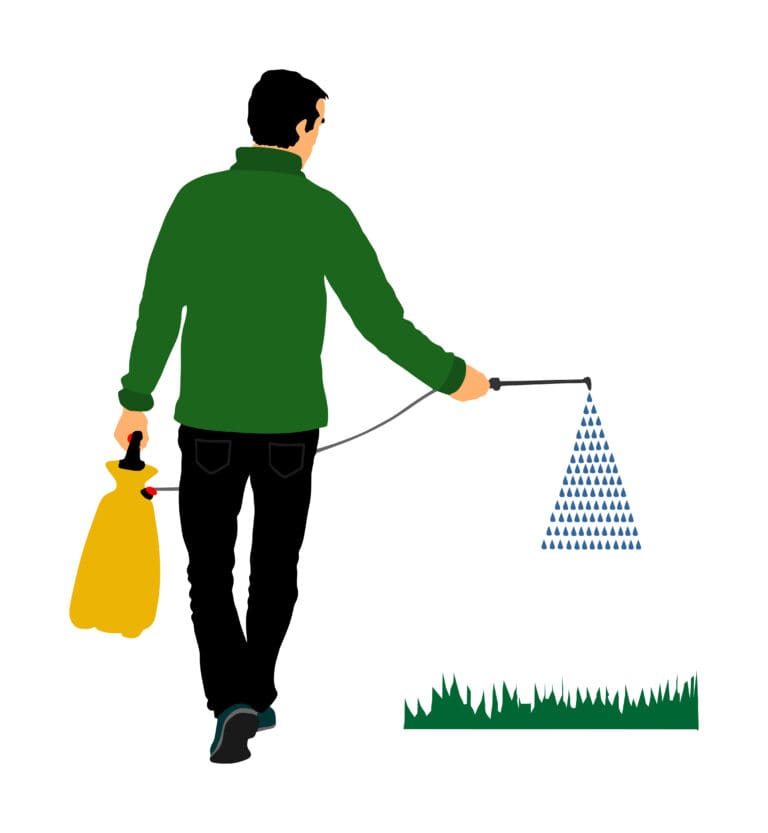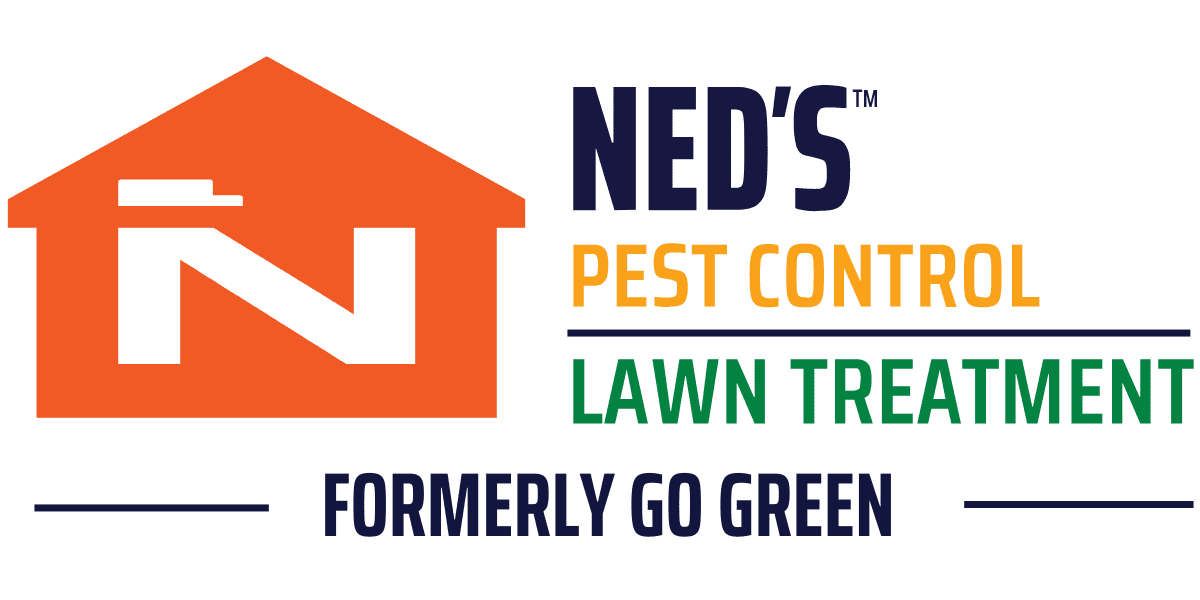Choose Go Green for Your All Your Lawn Care & Pest Control Needs
Gypsum is a naturally occurring mineral that’s renowned for its ability to enhance soil structure and promote plant growth. Join us in this blog where we take a closer look at how gypsum can revolutionize your lawn care routine.
What You will Read

What Is Gypsum for Lawn Care?
Gypsum, chemically known as Calcium Sulfate Dihydrate (CaSO4·2H2O), has become popular among homeowners in achieving a lush and healthy lawn. Its unique chemical composition makes it an excellent soil conditioner, particularly in areas with compacted or clay-heavy soil.
The Difference Between Gypsum & Lime
While both gypsum and lime are vital soil amendments, they serve distinct purposes. A soil amendment refers to any material added to soil that improves its chemical or physical composition. Lime primarily targets soil pH levels, especially when acidity affects how well plants absorb nutrients. Gypsum, on the other hand, focuses on improving soil structure, making it an ideal solution for addressing issues like soil compaction and poor drainage, often prevalent in clay-heavy soils.
-
When Do You Need Lime for Your Soil?
Lime is necessary when soil pH levels are too acidic, hindering nutrient uptake by plants. Testing soil pH regularly can determine if lime application is needed to balance acidity levels and create an optimal environment for plant growth.
-
When Do You Need Gypsum for Your Soil?
Gypsum is beneficial for soils with poor drainage or excessive compaction, commonly found in clay soils. It helps break up compacted soil, allowing for better water infiltration and root development. Additionally, gypsum can mitigate soil erosion and improve nutrient availability to plants.
The Benefits of Gypsum to Your Lawn
From chemical composition to easy applications, gypsum offers many benefits for lawn care enthusiasts, including:
-
Improves Soil Structure
Gypsum loosens compacted soil, promoting better root growth and air circulation.
-
Enhances Drainage
By reducing soil compaction, gypsum facilitates water infiltration and prevents waterlogging.
-
Increases Nutrient Absorption
Gypsum enhances essential soil nutrients, such as calcium and sulfur, for plant uptake.
-
Reduces Soil Erosion
Its soil-stabilizing properties help prevent erosion, especially on sloped landscapes.
-
Enhances Soil Aeration
Gypsum improves soil porosity, allowing for better oxygen exchange between roots and soil.

Gypsum Fertilizer Applications
When applying gypsum to your lawn as a lawn fertilizer, aim for a rate of 40 to 50 pounds per 1,000 square feet. This application can be done annually or as needed based on soil conditions. Incorporate gypsum into the soil through watering or mechanical means for optimal results.
Gypsum in Lawn Aeration
Gypsum serves as a natural aeration agent, reducing soil compaction and promoting healthier root systems. When aerating your lawn, consider incorporating gypsum to enhance your lawn’s appearance and ensure long-term soil health.
Frequently Asked Gypsum Questions
Call Go Green for Gypsum Lawn Applications
Overall, gypsum serves as a valuable tool in promoting soil health, enhancing crop productivity, and mitigating environmental issues associated with soil degradation. For a greener, healthier lawn, consider incorporating gypsum into your lawn care regimen. Its numerous benefits, from improving soil structure to enhancing nutrient absorption, make it a valuable asset in achieving your lawn goals. Take action today and choose Go Green for your lawn care needs.

Our Hospital Grade Disinfectant Program
At Go Green Lawn and Pest Control, we are doing our part to help prevent the spread of the COVID-19 disease with our Hospital Grade Disinfectant Program. For as low as $99, this service also protects against SARS, CoV-2, and other bloodborne pathogen diseases. Let’s all do our part to

Choosing the Right Food for Your Lawn: Organic Based Fertilizer vs. Chemical Fertilizer
That’s why it’s so important to familiarize yourself with the various types of fertilizers and learn how to use them correctly. As a leading lawn fertilization service that serves Bucks County, PA, Go Green Lawn Services knows a thing or two about growing healthy grass. In this article, we break

6 Backyard Activities for Summer Fun
After a long winter cooped up inside, nothing is better than kicking back in your own backyard and enjoying the warm weather. The hardest part about spending time outdoors is choosing which activities to do first! Check out our list of our favorite 6 backyard activities for summer to get













